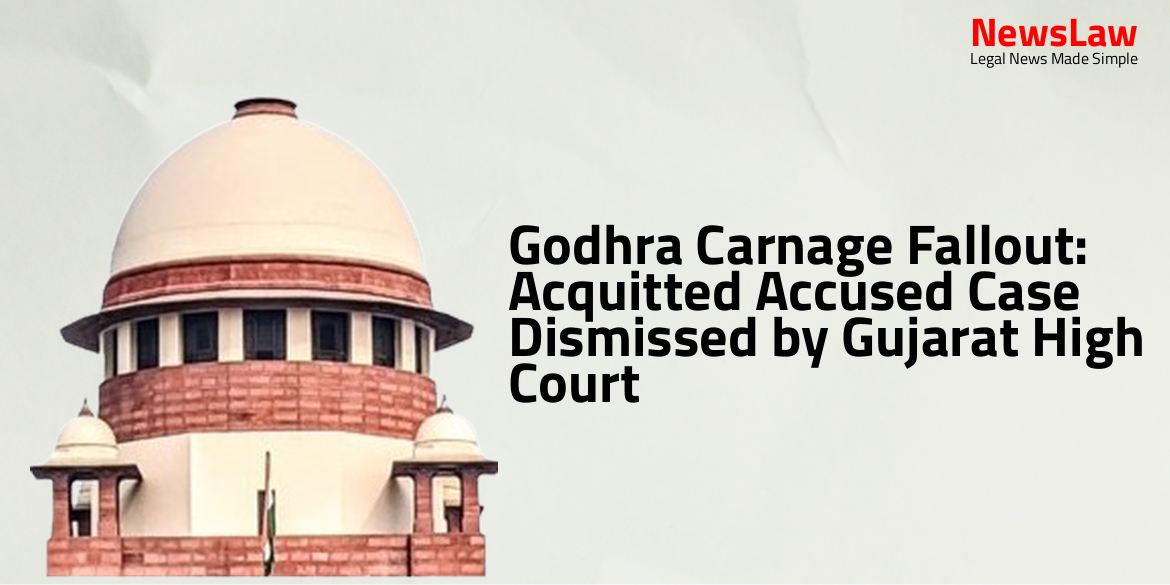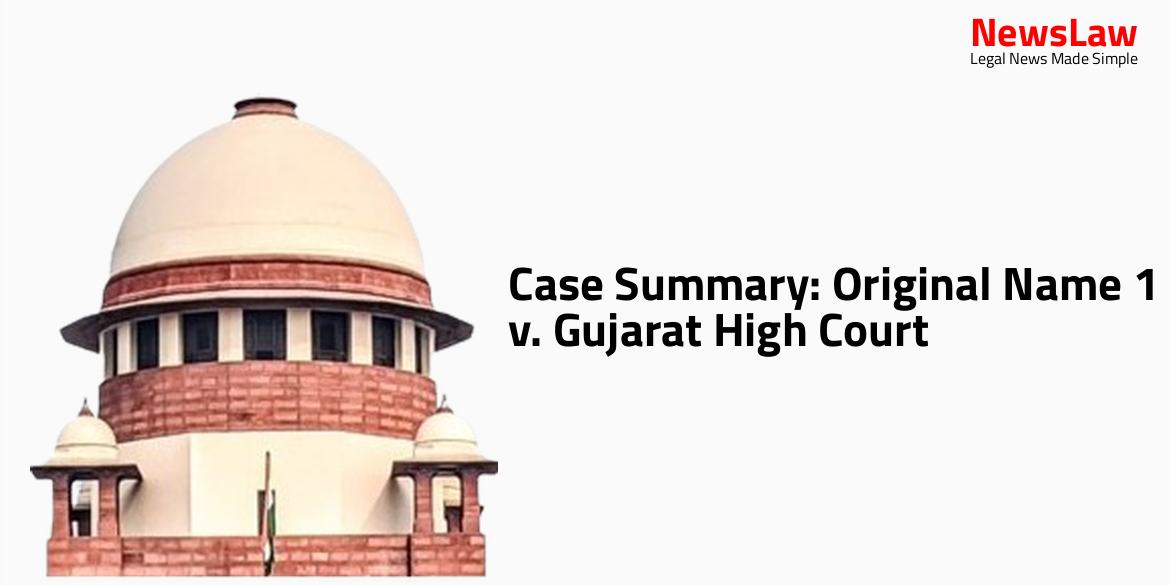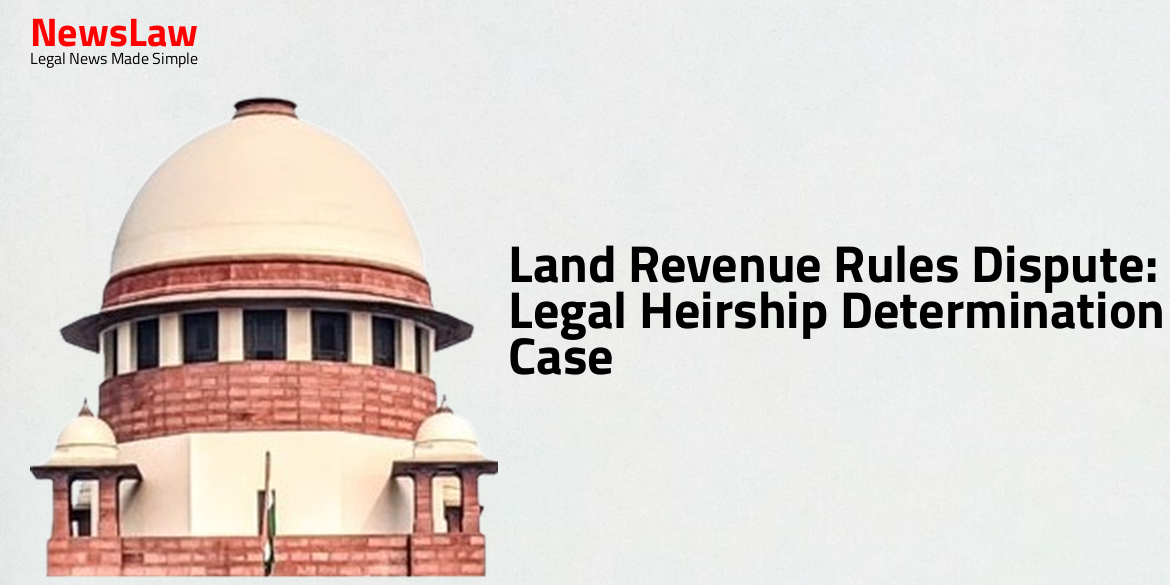In a case arising from the Godhra carnage fallout, the Gujarat High Court has dismissed the application challenging the acquittal of the accused. The petitioner, represented by Senior Advocate Mr. Borot, argued for a reconsideration of the trial court’s decision, citing serious errors in evaluating the evidence. Despite the attempt to establish offenses under IPC and the Arms Act, the High Court upheld the acquittal. Let’s delve into the details of this significant legal judgment.
Facts
- The respondents accused denied all incriminating circumstances against them as false and claimed innocence.
- Charge was framed against the respondents accused by the learned Sessions Judge.
- Respondents pleaded not guilty and opted for trial.
- Sufficient material found against the respondents accused leading to a charge sheet.
- The complainant filed the present Revision Application.
- Prosecution alleges that the victim had received threats prior to the incident.
- The trial for the accused is to be held exclusively in the Court of Sessions.
- Investigating agency gathered evidence including witness statements and FSL reports.
- Complaint lodged against the respondents accused for the alleged offenses.
- 19 witnesses and 13 documentary evidence presented by the prosecution before the Sessions Court.
- The Sessions Court questioned the respondents accused under section 313 of the Code about the incriminating circumstances.
- Both sides presented their arguments.
- Evidence presented by the prosecution was analyzed.
- The accused were acquitted of the charges.
Arguments
- Learned Senior Advocate Mr.Borot for the petitioner argued that the Trial Court made a serious error in not believing the prosecution’s case.
- The incident occurred after the Godhra carnage, and the acquitted respondents were accused of offenses under sections 307 and 120B of IPC, and section 25 of the Arms Act.
- The petitioner emphasized the attempt to murder PW-5, a politician under threat, which was supported by the deposition of witnesses PW-1 and PW-5.
- The use of a country-made pistol in the offense under section 25(C) of the Arms Act was not adequately addressed by the Trial Court.
- The recovery panchanama and FSL report supported the prosecution’s case, but technical contradictions in witness depositions were highlighted by the Trial Court.
- Evidence from witnesses PW-8 and PW-9 established a conspiracy to murder PW-5, which was seemingly ignored by the Sessions Judge during the acquittal.
- The petitioner argued that the gravity of the offense, occurring in the aftermath of the Godhra carnage, was overlooked by the Trial Court in the acquittal decision.
- The advocate for the accused submitted to dismiss the Revision Application.
- The advocate for the accused stated that the impugned judgment and order are just and proper.
- The advocate argued that the Sessions Court rightly acquitted the accused after proper evaluation of the evidence.
- The learned APP, representing the State, acknowledged that the State did not challenge the findings and reasons of the Sessions Court.
- The learned APP submitted to pass necessary orders in light of the State’s decision not to challenge the acquittal.
Analysis
- Magistrates, whether Executive or Judicial, are considered inferior to the Sessions Judge for the purposes of Section 398.
- The powers of revision under sub-section (1) shall not be exercised in relation to any interlocutory order.
- The High Court may exercise powers conferred on a Court of Appeal or a Court of Session in the case of any proceeding whose record has been called for, or otherwise comes to its knowledge.
- No order under Section 401 shall be exercised in relation to any interlocutory order passed in any appeal, inquiry, trial, or other proceeding.
- If an application under Section 401 has been made to either the High Court or the Sessions Judge, no further application by the same person shall be entertained by the other.
- The High Court or Sessions Judge may call for and examine the record of any proceeding before an inferior Criminal Court within its jurisdiction to ensure correctness, legality, or propriety of any finding, sentence, or order.
- No proceeding by way of revision shall be entertained if an appeal lies and no appeal is brought.
- If an appeal lies but an application for revision has been made to the High Court under an erroneous belief, the High Court may treat the application as a petition of appeal.
- Nothing in this section authorizes a High Court to convert a finding of acquittal into a conviction.
- No order prejudicial to the accused or any other person shall be made without giving them an opportunity to be heard personally or through a pleader.
- Revisional Court does not dwell at length upon the facts and evidence of the case.
- Learned Sessions Judge noted discrepancies about the country-made pistols used.
- Section 401(3) of Cr.P.C. prevents conversion of acquittal into conviction.
- The revisional power is limited to examining the correctness, legality, or propriety of findings or orders.
- The order of acquittal can only be challenged in exceptional cases for public justice.
- Critical discrepancies were found in the depositions of key witnesses PW-1 and PW-5.
- The FSL report suggested the country-made pistol from the road was used in the firing.
- The revisional jurisdiction is not to be lightly exercised and requires manifest illegality or miscarriage of justice.
- The purpose of conferring revisional jurisdiction is to correct miscarriages of justice.
- The learned Sessions Judge did not commit any apparent illegality in acquitting the accused.
- Key witnesses failed to provide consistent and reliable testimony, leading to disbelief by the Sessions Judge.
- The High Court does not interfere with judgments of acquittal unless there is a manifest error of law or procedure.
- Private complainants can file revision applications in specific circumstances, such as when the trial court wrongly excludes evidence that the prosecution wants to present.
- In revisional jurisdiction, the court should focus on the correctness, legality, and propriety of the findings and avoid substituting its own conclusions based on a detailed analysis of the evidence.
- The High Court, in its revisional jurisdiction, should not extensively re-examine oral and medical evidence to reach a conclusion contrary to the lower courts.
- Discrepancies that do not undermine the core testimony of witnesses should not be excessively emphasized, especially when key factors support the witnesses’ version.
- Revisional jurisdiction by the High Court, on a private party’s application in a case initiated on a police report, is exceptional and should be exercised in cases of manifest illegality or to prevent gross miscarriage of justice.
- The revisional jurisdiction should only be lightly exercised by the High Court when invoked by a private complainant against an acquittal, especially when the government has the right to appeal.
- Exceptional cases where revisional jurisdiction by the High Court may be warranted include instances where essential evidence was wrongly excluded, admissible evidence was erroneously rejected, trial court lacked jurisdiction but still acquitted the accused, material evidence was overlooked, or the acquittal was based on an invalid compounding of the offense.
- Section 401 of the Code of Criminal Procedure prohibits changing a finding of acquittal into a conviction.
- The Sessions Judge did not make any errors in understanding the law
- The complainant failed to prove their case according to the requirements of the law
- Revisional jurisdiction cannot be exercised by the High Court based on the arguments presented
Decision
- The Present Revision Application is dismissed
- It does not deserve any consideration
Case Title: DHARMESHBHAI VINUBHAI PATEL Vs. STATE OF GUJARAT
Case Number: R/CR.RA/842/2004



